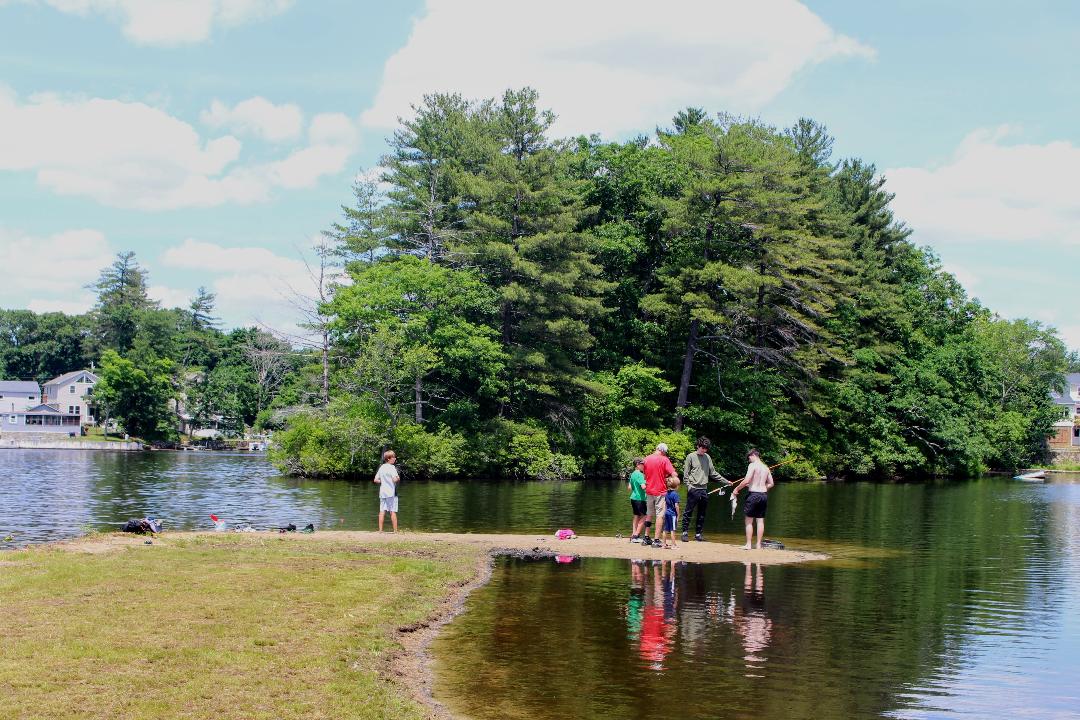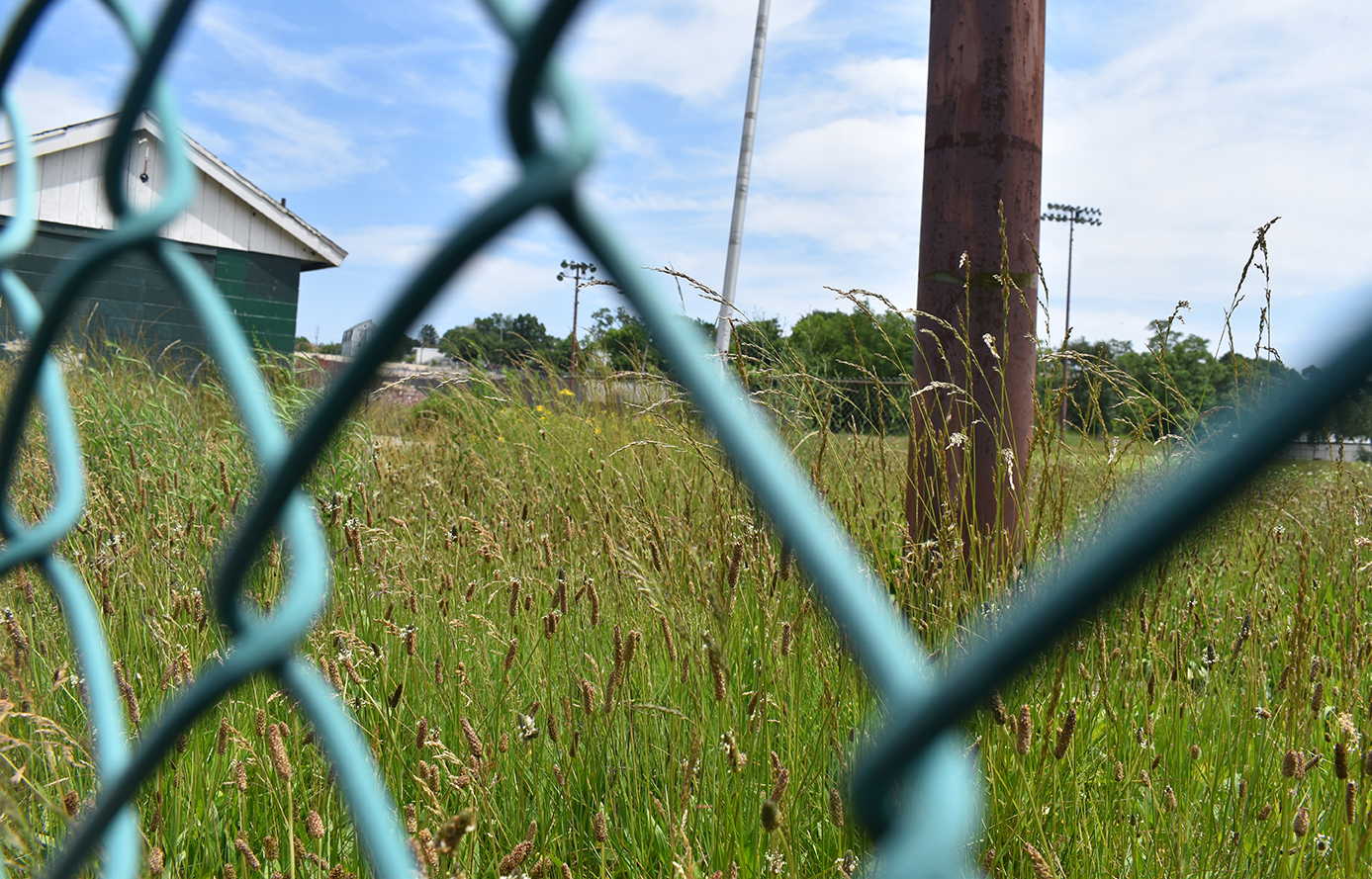DEM Rejects Plan to Convert Morley Field to Non-Recreational Use
June 6, 2024
PAWTUCKET, R.I. — The Rhode Island Department of Environmental Management will not recommend approval of a plan to convert part of Morley Field into non-recreational use, the agency announced Thursday.
The city submitted a Land and Water Conservation Fund application in February to convert a portion of Morley Field into a non-recreational use as part of a plan to redevelop the remaining land. The conversion would include a portion of the Hank Soar Complex at Dunnell Park and the McCoy Stadium Annex complex, which would require removing current recreation restrictions.
“DEM is not recommending approval of the proposed partial conversion of the South Woodlawn/Morley Field site at this time, because of the many environmental justice concerns expressed during the public comment period,” according to a June 6 DEM press release.
The field, at 94 Moshassuck St., is a public recreation facility created in the 1970s that consists of two parcels acquired through a National Park Service grant and as a gift from the late William H. Morley. The 5.3-acre site is restricted to recreational use only.
City officials want to sell Morley Field to JK Equities LLC for a reported $500,000. The company has asked the zoning be changed from public open to industrial. Once capped and paved over, Morley Field would be used for parking and as a staging area, according to JK Equities.
The New York-based real estate company wants to redevelop the old Microfibres Inc. factory next to Morley Field into a last-mile distribution center and use the neighboring open space as the final resting place for nearly 1,400 tons of contaminated dirt that needs to be removed from the site of the former textile operation.
To rescind Morley Field’s recreation-use-only designation, however, the city had to follow a rigorous process managed by federal and state agencies to create a replacement recreation area that is of equal or greater size and equal or greater value than Morley Field.
The city’s search was required to begin in District 5, where Morley Field is located, but it identified a replacement property outside the district: 9.5 acres of undeveloped land on Pawtucket’s south side between Riverside Cemetery and Max Read Field.
The property, which borders the Moshassuck River, has to be assessed by the National Park Service (NPS) and DEM to determine if it is a proper replacement for Morley Field. Both agencies would then have to approve the conversion plan before ownership could be transferred.
In a letter submitted to the NPS on Thursday, DEM formally requested written guidance for evaluating the equity concerns of the conversion plan and said it will reconsider the conversion of the Morley Field site, if appropriate, under the terms of that guidance.
“Every Rhode Islander deserves access to safe and convenient public places for recreation,” DEM director Terry Gray said. “When sites are proposed for conversion from recreational use to other uses, careful evaluation is necessary to ensure that recreational opportunities are not lost, especially in historically underserved communities.”
Gray added, “By voluntarily providing an opportunity for public comment which was not required by federal requirements during the conversion process, Mayor Grebien and the city demonstrated their commitment to hearing the voices of the community. Those voices were heard loud and clear and in response, we are seeking formal guidance from our federal partner agency on properly addressing this critical issue.”
A public comment period for a new recreation area on the city’s waterfront was hosted in early February for residents to comment on any aspect of the conversion.
“Morley Field is an essential green space for the Woodlawn community, and its closure and neglect are unacceptable,” said Darrèll Brown, Rhode Island vice president at the Conservation Law Foundation. “The state’s decision to defer its recommendation regarding Morley Field acknowledges the critical role of environmental justice in protecting community resources. We urge the Department of Environmental Management and the National Parks Service to fight for environmental justice by protecting Morley Field for the benefit of the community, not industry.”
CLF in May sent a letter to DEM and NPS asking them to deny the city’s plan for Morley Field.
City Council member Clovis Gregor, who represents the environmental justice neighborhoods of Oak Hill and Woodlawn that make up the district in which Morley Field is located, told ecoRI News two years ago he wasn’t pleased that “this largely and historically underserved minority community” could lose its only protected public outdoor recreational area. He was even less enthused with the plan to replace the restricted-use site.
The Pleasant Street site is nearly a mile away from Morley Field. The mayor’s office has said this open space property in District 4 would create additional green space and new recreation opportunities for the city.
The problem, according to Gregor, is that the densely populated neighborhoods he represents will be left without any green space.
“District 5 has no open recreational green space short of Morley Field,” he wrote in a 14-page document he sent to his fellow City Council members. “As such, it is easy to see the critical importance and value of recreational green space in this most affected community. Hence, it becomes ever more crucial and absolutely imperative that the collective Council, together with the Administration, ensure that all viable District 5 replacement options are properly and fully explored and considered.”




it’s great to hear that this project has been stalled and that DEM is not recommending the pave over! still, it’s concerning to hear that a possible relocation of a district 5 green space could then turn morely field into a “final resting place for nearly 1,400 tons of contaminated dirt”? how does DEM feel about that? it’s sounds terrible given that the site is on the battered-but-recovering moshassuck river…
The proposed recreation area “in exchange” for Morley Field is over a mile (not “nearly” a mile) from Morley–I’ve clocked it twice. It is adjacent to two already-existing ball fields and a playground. The proposed exchange area was part of a private cemetary before the city purchased it “in exchange” for Morley Field. The cemetary is already open and a pleasant walking place for people who want to go there. The city also claims to be developing a walking and park area adjacent to the coming stadium. Oak Hill also has a small park next to the boat launch area on Pleasant St.
Adding more city run green spaces to Oak Hill is hardly an exchange for the one green place in Oaklawn. I encourage everyone to read the Conservation Law Foundation (CLF) letter, which takes a radically different view from Grebrien’s optimistic assertions.
“Beware of Greeks bearing gifts”. Why would anyone, other than a for-profit developer, even consider selling off recreational space for a parking lot and hazardous waste storage area? As Joni Mitchell said, “they paved paradise and put in a parking lot”. Extra parking space we do not need, recreational spaces we do need and must preserve. “Replacement properties” don’t cut it in my view. NEVER give up open space or recreational space for development that, in the end, only benefits the developer.
I have been involved in the fight to Save Morley Field from the beginning. It is the only green space in Woodlawn, has Osprey nesting on the light tower, and is the only place in all of pawtucket with good access to the Moshassuck River. The Moshassuck is about to have its combined sewer overflows dramatically reduced, so for the first time in 100 years people will really want to be near the river. So of course the racists in Pawtucket city government decide now is the time to abandon Morley Field and river access. TYo boot the economic development plan in Pawtucket is just plain stupid and focused on low paying highly polluting jobs.
DEM and NPS have fairly new Environmental Justice statements that remind us that it is not just pollution, but lack of greenspace as well, that contributes to the deterioration of EJ communities. Pawtucket needs to get a clue and reopen the park. It is not only the right thing to do, it is what the law says is required.